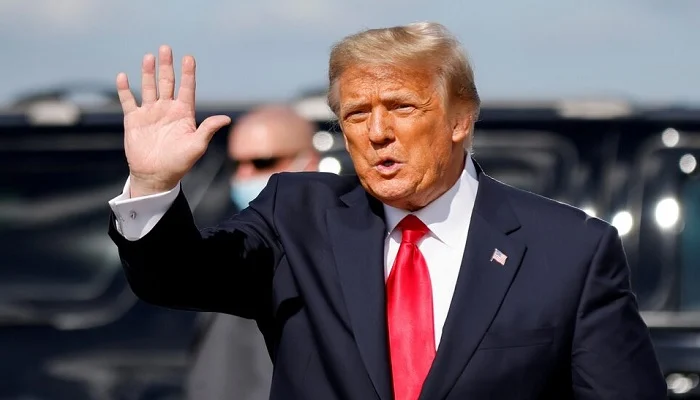US President Donald Trump this week expressed his openness to meeting with Iran’s supreme leader or president, suggesting that the two nations could reach a new agreement regarding Tehran’s contested nuclear program.
However, Trump, who in 2018 withdrew the United States from the now-defunct nuclear deal between Tehran and world powers, reiterated his threat of military action against Iran unless a new pact is swiftly established to prevent the country from developing nuclear weapons.
In an April 22 interview with Time magazine, published on Friday, Trump stated, “I think we’re going to make a deal with Iran” following indirect US-Iranian talks last week, where both sides agreed to formulate a framework for a potential agreement.
Speaking separately to reporters at the White House on Friday, the Republican US president reaffirmed his optimistic outlook, saying: “Iran, I think, is going very well. We’ll see what happens.”
A US official reported that the discussions yielded “very good progress.”
When asked by Time whether he was open to meeting with Iranian Supreme Leader Ali Khamenei, who holds ultimate authority on all major state policies, or President Masoud Pezeshkian, Trump replied: “Sure.”
Expert-level talks are scheduled to resume on Saturday in Oman, which has served as an intermediary between the long-standing adversaries, with a third round of high-level nuclear discussions planned for the same day.
Israel, a close US ally and Iran’s primary Middle Eastern adversary, has described Tehran’s escalating uranium enrichment program—a potential pathway to nuclear weapons—as an “existential threat.”
Israeli Prime Minister Benjamin Netanyahu has called for the complete dismantling of Iran’s nuclear capabilities, asserting that partial measures would be insufficient to ensure Israel’s security.
When asked in the interview if he was concerned that Netanyahu might draw the United States into a war with Iran, Trump responded: “No.”
‘I’ll be leading the pack’
However, when questioned whether the US would join a war against Iran should Israel take action, he replied: “I may go in very willingly if we can’t get a deal. If we don’t make a deal, I’ll be leading the pack.”
In March, Iran responded to a letter from Trump, in which he urged the nation to negotiate a new deal, by stating that it would not engage in direct talks under maximum pressure and military threats but was open to indirect negotiations, as in the past.
Although the current talks have been indirect and mediated by Oman, US and Iranian officials did engage in brief face-to-face discussions following the first round on April 12.
The last known face-to-face negotiations between the two countries occurred under former US President Barack Obama during the diplomatic efforts that led to the 2015 nuclear accord.
Western powers accuse Iran of pursuing a clandestine agenda to develop nuclear weapons capabilities by enriching uranium to a high level of fissile purity, exceeding what they deem justifiable for a civilian atomic energy program.
Tehran maintains that its nuclear program is entirely peaceful. The 2015 agreement curtailed Iran’s uranium enrichment activity in exchange for relief from international sanctions, but Iran resumed and accelerated enrichment after the Trump administration withdrew from the agreement in 2018.



